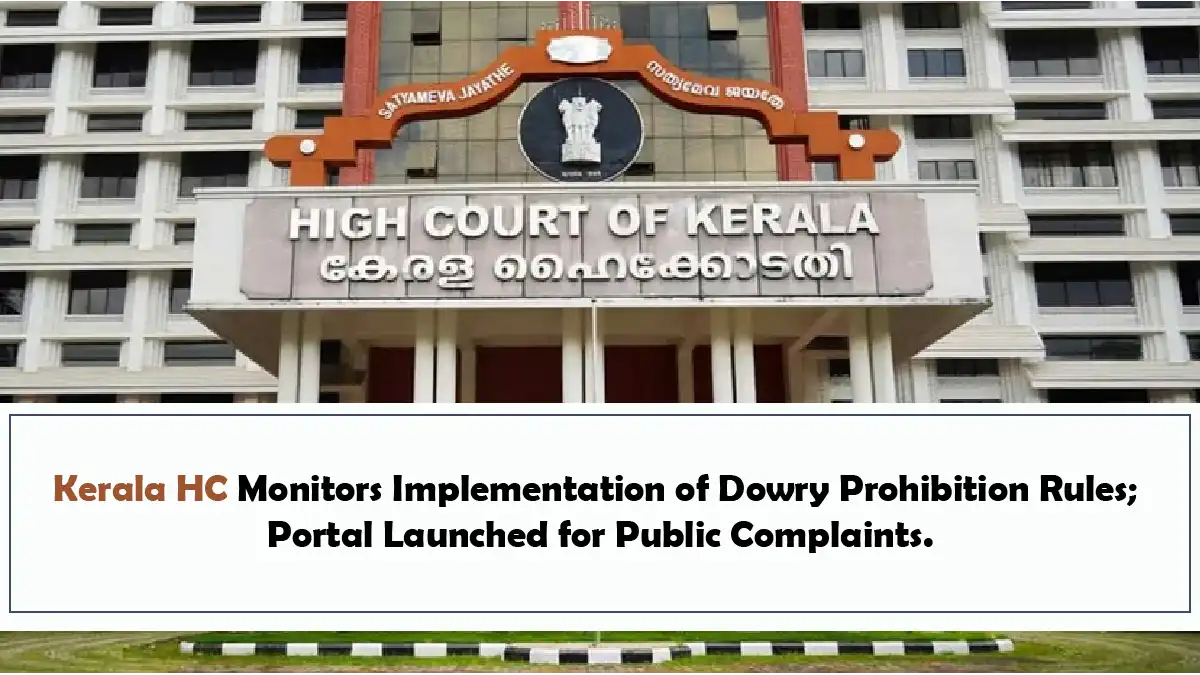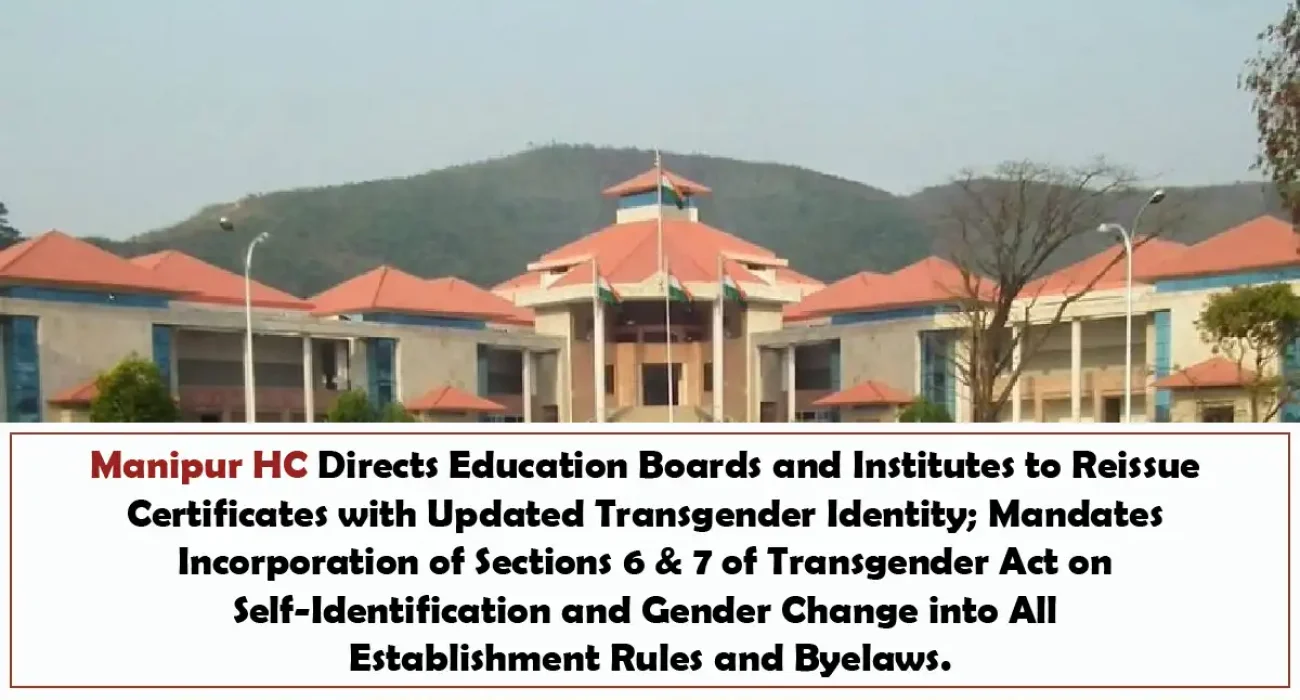

The petitioner, Dr. Beoncy Laishram, a transgender woman, approached the Manipur High Court after being denied correction of her name and gender in her educational certificates issued by the Board of Secondary Education Manipur (BOSEM), Council of Higher Secondary Education Manipur (COSEM), and Manipur University (MU). Despite having successfully updated her Aadhaar, Voter ID, and PAN card with her self-identified name and gender, the respondents refused to alter her academic records, citing lack of enabling provisions in their regulations. The petitioner contended that she had obtained a certificate of identity from the District Magistrate, Imphal West under Sections 6 and 7 of the Transgender Persons (Protection of Rights) Act, 2019, after undergoing gender reassignment surgery. She thus sought judicial intervention for recognition of her rights under the statute.
The petitioner argued that under Sections 4, 5, 6 and 7 of the Transgender Act, 2019, transgender persons have a statutory right to recognition of their self-perceived gender identity, and if surgery is undertaken, to obtain revised certificates reflecting their new name and gender. She pointed out that Rule 2(d) read with Annexure-I of the Transgender Rules, 2020, expressly includes educational certificates as official documents that must be corrected. She submitted that refusal by BOSEM, COSEM and MU violated her statutory and constitutional rights, and that Section 20 of the Act mandates the incorporation of these provisions into all existing statutes, rules and byelaws.
The respondents opposed the plea primarily on procedural grounds. BOSEM argued that since its byelaws contained no provision for changing name or gender in certificates once issued, the petitioner’s request could not be entertained. COSEM and MU contended that corrections, if at all, must begin with the first institution that issued the initial certificate and only then flow to later institutions. Manipur University further raised a technical objection, pointing to a typographical discrepancy in the District Magistrate’s certificate regarding the spelling of the petitioner’s original name (“Boboi” vs. “Boiboi”), and claimed this prevented any update in university records.
Justice A. Guneshwar Sharma began by emphasizing that the Transgender Persons (Protection of Rights) Act, 2019 grants transgender persons the right to self-perceived gender identity, in line with the Supreme Court’s decision in NALSA v. Union of India. The Court held:
“From a conjoint reading of the provisions of Sections 4, 5, 6 & 7 of the Act, transgender person has a right to choose a self-perceived gender identity apart from the binary division of male and female…If a transgender person has undergone gender reassignment surgery and on the basis of the certificate issued by the concerned hospital where the surgery has been performed, a transgender person has a right to apply for a revised certificate incorporating the new gender self-adopted post-surgery.”
The Court rejected BOSEM’s argument that absence of express provisions prevented the change, holding that “the provisions of Sections 6 & 7 of the Act have to be read into the rules/byelaws/regulations of the Board in terms of Section 20 of the Act.”
It also dismissed the claim that corrections must begin with the initial institution, observing that “any establishment, as defined under Section 2(b) of the Act, has an obligation under Section 10 to make necessary correction for the new name and gender of the transgender person…without waiting for such correction by the initial institute.”
On the typographical error in the DM’s certificate, the Court clarified that it was a mere technicality: “This is a simple typographical mistake and the right of the transgender person to change her first name and gender cannot be denied on this technical issue.”
The Court further noted that Section 20 provides that the Transgender Act operates “in addition to and not in derogation of” other laws. Thus, provisions of Sections 6 and 7 must be incorporated into all state laws, rules, and regulations by way of harmonious construction unless irreconcilably inconsistent.
The High Court allowed the writ petition and directed BOSEM, COSEM, MU, and Manipur Medical Council to reissue the petitioner’s educational certificates reflecting her new name, “Beoncy Laishram,” and gender as “female” in place of her birth name and gender. The authorities were given one month to comply, based on certificates issued by the District Magistrate under Sections 6 and 7 of the Act.
The Court further directed that:
With these directions, the petition was allowed and disposed of.
Written by Adv. Deeksha Rai
IAW resources
Browse our help directory